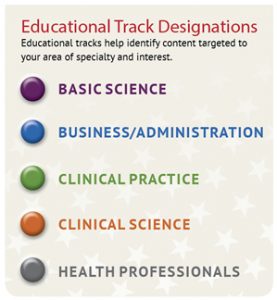 The ACR organizes Annual Meeting sessions based on educational tracks that can help you identify the most relevant content based on specialty or area of interest. Use tracks to help you navigate one of the largest and most inclusive gatherings of rheumatologists and rheumatology health professionals on Earth.
The ACR organizes Annual Meeting sessions based on educational tracks that can help you identify the most relevant content based on specialty or area of interest. Use tracks to help you navigate one of the largest and most inclusive gatherings of rheumatologists and rheumatology health professionals on Earth.
The Basic Science track is designed for researchers and academicians seeking cutting-edge science. The Business/Administration track helps practice managers, clinicians, and health professionals get information about business, regulatory, and compliance issues that can impact a rheumatology practice. Clinical Practice is designed for clinicians and health professionals in search of the latest developments in patient care. Clinical Science examines the practical treatment applications of the latest research findings for researchers, clinicians, and health professionals. You will also find sessions highlighted for health professionals, whose needs and interests span multiple tracks.
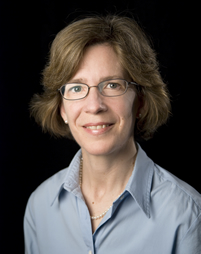
Basic science
“Basic science sessions are becoming more and more translational and relevant to clinical questions and clinical problems,” said AMPC Basic Science Sub-Chair Lindsey Criswell, MD, MPH, Professor of Medicine at the University of California, San Francisco. “While the research is basic, the evidence of relevance to patients and to clinical rheumatology is clearer and stronger than it ever has been.”
One of the best examples of the growing clinical focus of basic science is the Rheumatology Research Foundation Memorial Lecture Honoring Dr. Ephraim Engleman: T Cell Receptor Signaling on Tuesday starting at 7:30 AM. Famed T cell researcher Arthur Weiss, MD, PhD, Chief of Rheumatology and Ephraim P. Engleman Distinguished Professor at UCSF, will highlight the latest findings in T cell receptors and associated pathways and their relevance to clinical rheumatology.
Autoimmunity and the Microbiome will explore growing evidence linking the microbiome to autoimmunity and related diseases on Sunday at 4:30 PM. Microbiome research is challenging, Dr. Criswell said, but it is transforming basic concepts and perspectives on rheumatologic diseases and their treatment.
Don’t miss the annual Immunology Update, Biologic Agents: From Nature to Protein Engineering to Biosimilars, on Tuesday at 7:30 AM. Biosimilars hold the promise to improve access to key biologic agents, but actually producing a biosimilar requires very challenging basic science research.
Developing new therapeutics is even more challenging. Mining Big Data for Drug Repurposing, Tuesday at 11:00 AM,
will explore the concepts and practicalities of trimming development timelines and costs by using big data approaches to uncover existing agents that show promise in rheumatologic diseases.
Don’t plan to leave Washington early. Single Cell Analysis: Promises and Challenges at 11:00 AM on Wednesday will offer new perspectives on emerging techniques that allow excruciatingly detailed analysis of single cells.
“Even if you are focused on a specific type of B or T cell, that subset encompasses a tremendous range of immune phenotypes,” Dr. Criswell said. “This new technology is tremendously important to all immune and related diseases that involve heterogeneity based on cell types or mixtures of different immune phenotypes.”
Business/Administration
The Business/Administration track gives Annual Meeting attendees a preview of the major changes in reimbursement coming to rheumatology in 2017. Holy MACRA! How to Survive and Thrive in the New Era of MACRA, MIPS, and APMs will open the track on Sunday morning.
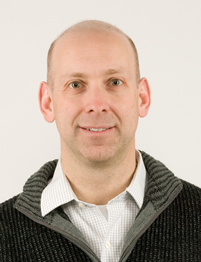
“MACRA, the Medicare Access and CHIP Reauthorization Act of 2015, changes the reimbursement rules in significant ways,” said Douglas White, MD, PhD, Chair of the Committee on Rheumatologic Care (CORC) and a private practice rheumatologist in Onalaska, Wis. “In spite of rumors about a possible delay, it appears that the data used to calculate whether or not you will get an increase in reimbursement or be subject to a penalty in reimbursement starting in 2019 will be collected starting Jan. 1, 2017. We are trying to get the rheumatology community ahead of that deadline.”
MACRA creates a new Quality Payment Program, with two paths linking the quality of care to reimbursement, the merit-based incentive payment system (MIPS) and alternative payment models (APMs). The Centers for Medicare and Medicaid Services expects most physicians to opt for MIPS in 2017, Dr. White said. The agency wants providers to move into APMs as new models are developed and approved over the next few years.
A second key session is the Legislative and Regulatory Update 2016 on Tuesday morning.
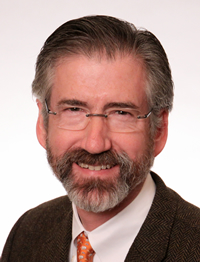
“This session will help attendees understand what is likely to happen as a result of the election on Nov. 8,” said Timothy Laing, MD, member of the ACR Board of Directors and CORC and Associate Professor of Internal Medicine at the University of Michigan Health System in Ann Arbor, Mich. “The implications of the Presidential election and whether the House and Senate remain Republican-controlled are important for many of our issues.”
Practice managers have two full days of pre-meeting courses. The advent of ICD-10 has transformed coding and triggered intense scrutiny of coding accuracy, Dr. White said. The Advanced Rheumatology Coding Case Study Workshop on Friday is one of the few rheumatology-specific coding courses available to help practice mangers meet the new coding challenges.
The Saturday Practice Management Course: The Next Generation of Business Development for Rheumatology Practices offers expertise and potential solutions to some of the most vexing issues practice managers face today.
Clinical Practice
Clinical science advances continue to drive changes in clinical practice that can make it difficult for clinicians to keep pace. This year’s full schedule of Clinical Practice sessions helps.
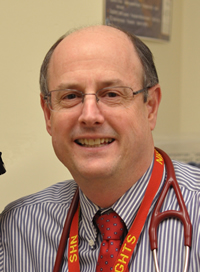
“The theme this year is taking care of patients who are more challenging,” said AMPC Clinical Sub-Chair Gregory C. Gardner, MD, Gilliland-Henderson Professor of Rheumatology at the University of Washington in Seattle. “Clinicians can look forward to expert guidance in multiple areas, from skin-related sessions to co-morbidities and the practical applications of ultrasound in caring for patients with rheumatologic conditions.”
First up is a two-day pre-meeting course Musculoskeletal Ultrasound Course for Rheumatologists – Fundamentals on Friday and Saturday. A separate pediatric course requires additional registration.
“Ultrasound has been used by European rheumatologists for many years,” Dr. Gardner said. “In the past five or 10 years, many U.S. rheumatologists have embraced, and many programs include, ultrasound training for fellows. But once you get into practice, you don’t often have access to resources to remind you of the anatomy and the visualizations you are likely to see. These anatomy-based sessions can help attendees beef up their understanding and knowledge of anatomy and the kinds of things they might see as they image the musculoskeletal system using ultrasound.”
Dermatologic sessions begin on Monday morning with Cutaneous Lupus in All Its Varieties: Judging a Book by Its Cover. The second session, Dermatomyositis Topics: More Than Skin Deep, wraps up Monday afternoon. There are also several Meet the Professor sessions focusing on dermatologic topics.
Also on Monday is an in-depth look at the Treatment of Rheumatoid Arthritis When the Patient Is Not Well. RA can be challenging to treat on its own, but many patients also present with concomitant diseases of the liver, lungs, or heart.
“These kinds of comorbid conditions make treatment of RA a little more challenging,” Dr. Gardner said. “But challenging is not impossible, and you do have options. We are trying to help clinicians improve their ability to care for patients by hearing from experts on how it might be done. Those who attend can expect to come away with new thoughts, new ideas, and new approaches.”
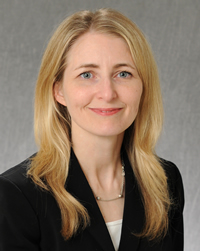
Clinical Science
“I always start my Annual Meeting with the Year in Review,” said Victoria Shanmugam, MD, who is the AMPC Clinical Science Abstract Selection Co-Chair. “It is the first scientific session in the Clinical Science track on Sunday morning, and the most succinct update on what is newest and most important in rheumatology for the year. It sets you up for the flood of information that will be coming over the next few days.”
The track brings two innovations for 2016, said Dr. Shanmugam, Associate Professor and Director of Rheumatology at George Washington University in Washington, D.C.
New this year is a daily session on Anatomy for the Clinician. Two sessions will review the hip and hip pain, the anterior hip on Sunday and the posterior hip on Monday. The Tuesday session explores the knee and knee pain.
Also new this year is a focus on health disparities. Poster sessions feature a new subcategory focusing on population-specific differences in the presentation of rheumatologic diseases and differences in health outcomes. There is also a symposium examining Rheumatic Diseases in Native Americans: What We Can Learn, How We Can Help on Sunday morning.
The daily plenary sessions are another must-attend for clinicians.
“These are great opportunities to hear about the newest, hottest, most relevant clinical research,” Dr. Shanmugam said. “Our plenaries are one of the few opportunities to see and hear the great advances in our field hot off the presses.”
Another don’t-miss session is the Clinicopathologic Conference, or CPC, on Monday morning. The session walks through a consult that was originally intended to rule out vasculitis and uncovered an unusual and important syndrome that mimics vasculitis.
“I will be moderating the session and can attest to just how important and how vexing this case was because it comes from my own clinic,” Dr. Shanmugam said. “We need to raise awareness of this important vasculitis mimic.”
Other clinical highlights include an update on Advances in Takayasu’s Arteritis and a practical look at how to use Genetics in the Rheumatology Clinic, both on Monday, and the annual Rheumatology Roundup meeting review on Wednesday morning.
Health professionals
Health professionals are a key segment of the ACR/AHRP membership and have their own focus at the Annual Meeting. Sessions span the diversity of health professional practice settings and patient populations with sessions focusing on at-risk populations, sexuality and intimacy concerns for male and female patients and their partners, the growing focus on biomarkers, and the practical impact of long-term therapy with biologics.
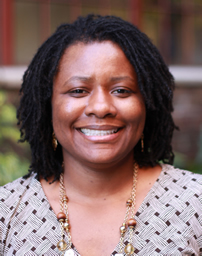
“The best place to start your Annual Meeting program is with the ARHP Keynote Address: Culture, Health, Healing: Humanities in Inter-Professional Collaboration and Patient-Centered Care on Sunday from 9:00 to 10:00 AM,” said AMCP Health Professionals Sub-Chair Hazel L. Breland, PhD, OTR/L, Associate Professor and Academic Fieldwork Coordinator for Occupational Therapy at the Medical University of South Carolina in Charleston.
“Paulette Hahn, MD, Associate Professor of Medicine at the University of Florida in Gainesville, will offer the latest perspectives on collaborating with other professionals to keep our focus centered on the patient and improve care. I would follow up with our Distinguished Lecturer, Catherine Backman, PhD, OT(C), Professor of Occupational Therapy at the University of British Columbia in Vancouver, and her talk on Doing, Being, Participating: State of the Science on Monday from 9:00 – 10:00 AM.”
Also on Monday will be a groundbreaking collaboration with the European League Against Rheumatism. EULAR/ARHP Pain Management Trends at 2:30 PM will look at the latest updates in pain management from both sides of the Atlantic. Health professionals in Europe and the U.S. face similar challenges managing pain in the setting of rheumatologic diseases, Dr. Breland said. Different perspectives and different health systems can generate different approaches and different solutions that can help stimulate innovation and improve outcomes.
One of ARHP’s top programs from 2015 is back, the three-day Immunology Boot Camp. Session I, Sunday at 11:00 AM, will cover the Basis of Targeted Therapy. Session II, at 7:30 AM Monday, will explore the Basic Mechanisms of Autoimmunity. Session III, Tuesday at 7:30 AM, will discuss Applying Principles of Immunology to Treatment Decisions.
